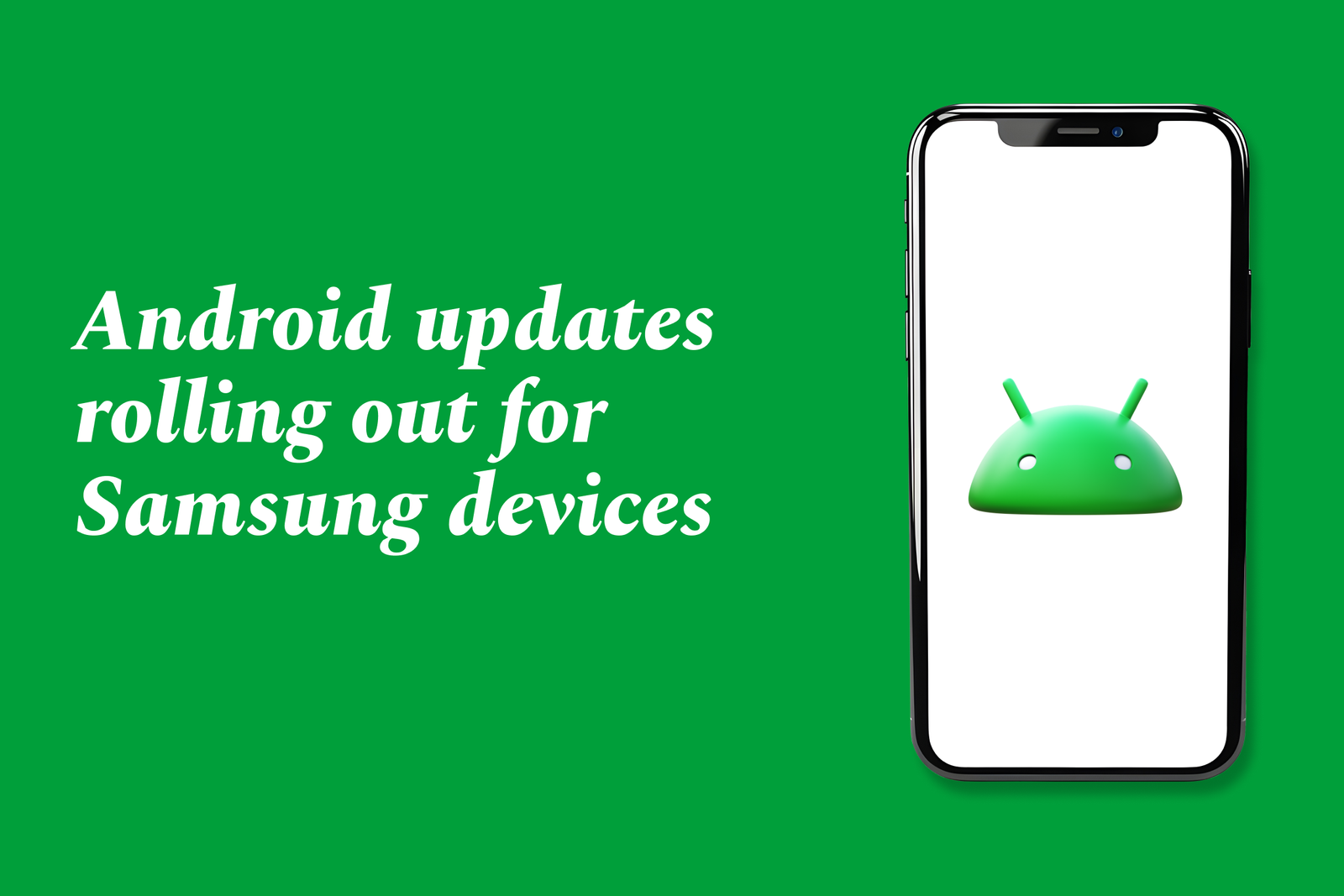Android Updates Rolling Out for Samsung Devices
Samsung is rolling out Android updates and security patches for its Galaxy devices, enhancing features and fixing bugs. While monthly security updates continue, the major Android 15-based One UI 7 rollout is temporarily paused due to a critical bug to ensure user stability.
Android updates rolling out for Samsung devices
1 ) Overview of Samsung’s Update Rollouts
Samsung is actively rolling out multiple Android updates and security patches for its Galaxy devices. While the major Android 15 based One UI 7 update is scheduled for a broader release in 2025, monthly security updates such as the November 2024 patch are currently being distributed.
2 ) November 2024 Security Update Details
The November 2024 update focuses mainly on security, delivering over 30 high priority security fixes.
A key feature enhancement in this update is to the Auto Blocker security feature — when set to “Maximum,” it now blocks all USB devices except those used solely for charging, enhancing protection from USB based threats.
No critical security patches were included this time, but the update ensures protection aligned with Google's November Android Security Bulletin.
3 ) Devices Receiving the November 2024 Update
The update has begun rolling out to a range of Samsung devices including:
Galaxy S24, S24+, S24 Ultra
Galaxy S23, S23+, S23 Ultra
Galaxy Z Fold 4
Galaxy Z Flip 4
Galaxy Tab S7 FE
The rollout will continue expanding to more models and regions in the coming weeks.
4 ) One UI 7 Update Delayed Due to Critical Bugs
Samsung had started releasing One UI 7 (Android 15 ) to flagship devices like Galaxy S24 series and Z Fold 6 in early April 2025.
However, the rollout was paused globally due to reports from Galaxy S24 users encountering a critical bug that caused issues unlocking their devices.
Samsung confirmed the delay and stated they are revising the rollout schedule to ensure the best user experience but have not yet provided a timeline for the fix or resumed rollout.
5 ) Additional New Features in One UI 6.1 and Upcoming One UI 7
One UI 6.1 has introduced features like customizable lock screen widgets, improved battery protection, and AI powered photo editing tools.
Larger feature upgrades are expected with the full One UI 7 (Android 15 ) update slated for release in 2025 after Samsung resolves current issues.
Summary: Samsung is steadily pushing security updates like the November 2024 patch to a wide range of Galaxy devices, enhancing security features such as USB device blocking. However, the highly anticipated Android 15 based One UI 7 update’s global rollout has been temporarily halted due to critical bugs affecting device unlocking, showing Samsung’s focus on stability before broad deployment. Users can expect both security patches and new features in Samsung’s upcoming software updates.
https://justacademy.in/news-detail/is-react-native-still-competitive-with-flutter?
https://justacademy.in/news-detail/flutter-for-smart-tvs-and-iot
https://justacademy.in/news-detail/flutter-for-startups:-quick-mvp-building-guide
https://justacademy.in/news-detail/future-of-flutter-careers-post-2025
https://justacademy.in/news-detail/flutter-job-interviews:-what’s-changed
Related Posts
Java supports GDPR and data privacy by enabling secure data handling through encryption, controlled access, and precise data management. It allows developers to minimize PII exposure, ensure data confidentiality, and design workflows that comply with data protection regulations effectively.
Java code quality tools have evolved to include advanced static analysis, integrated security checks, and AI-powered code reviews. These updates help developers detect bugs, enforce coding standards, and enhance security, streamlining the development process and improving overall code reliability.
Java remains a cornerstone in big tech companies, evolving with modern features like records, pattern matching, and virtual threads. Its robust ecosystem, enhanced performance, and growing AI integrations keep it vital for both legacy systems and innovative new projects.
Java and CI/CD pipeline optimizations streamline Java application development by automating builds, tests, and deployments. They improve efficiency through parallelization, caching, and secure secrets management, enabling faster feedback loops and more reliable, scalable software delivery.
Java supports modern cryptography standards through its flexible Java Cryptography Architecture (JCA), enabling integration of advanced algorithms like AES, EdDSA, and post-quantum tools. Libraries like Bouncy Castle offer FIPS-certified, hardware-accelerated implementations for secure development.
Java 23 enhances record patterns by enabling concise, direct destructuring of record components within pattern matching, simplifying type checks and data extraction. This improvement boosts code readability and expressiveness by reducing boilerplate in handling immutable data classes.
Java remains a top choice for mobile app backends, powering scalable, secure, and high-performance server-side solutions. Latest trends include cloud-native microservices, reactive programming, and enhanced JVM optimizations, enabling efficient, flexible, and robust mobile backend development.
Java SE 24 and LTS Java SE 21 offer enhanced features and performance, while Apache Spark 4.0.0 introduces Scala 2.13 support and advanced ML and SQL capabilities. Together, they empower developers to build scalable, high-performance data applications with modern tools.
JUnit 5 modernizes Java testing with a modular architecture, improved assertions, and seamless Java 8+ support. Beyond JUnit, tools like Mockito and AssertJ enhance mocking and assertions, creating a powerful, flexible ecosystem for writing clean, efficient Java unit tests.
Java plays a pivotal role in cloud automation tools by providing a robust, platform-independent language used to build scalable automation frameworks like Jenkins and Selenium, enabling efficient CI/CD pipelines, testing, and orchestration across diverse cloud environments.










